Chrysanthemum Joe
“Jeffries number one? No, sir. Give me Joe Choynski anytime. I faced both and should know. Jeffries had a powerful wallop, but Choynski had a paralyzing punch. His left hand was a corker. He was the hardest puncher in the last fifty years, with Joe Walcott a close second. I think his left hook was even more effective than Dempsey’s. Choynski could paralyze you, even if he didn’t catch you flush.”
These are the words of no less an authority than all-time great heavyweight Jack Johnson, his reply in a 1940 interview to the question of who was the hardest puncher he had ever faced. On February 25, 1901, Choynski and Johnson battled in Galveston, Texas, Johnson’s hometown. Since at that time boxing was illegal in Texas, the event was billed as an exhibition, which it was until Choynski landed a devastating left hook in the third round to become one of the precious few to ever stop the man who later became the first Black heavyweight champion.
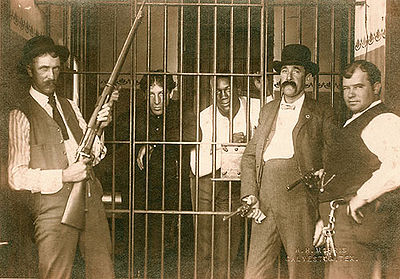
Both pugilists were arrested immediately after the illegal match, but being put in a jail cell with Choynski turned out to be a blessing in disguise for Johnson. The advice he received from the older and wiser pro during their brief lock-up was instrumental in making “The Galveston Giant” a complete fighter. “A man who can move like you,” Choynski had told him, “should never have to take a punch.”
“Joe developed a great liking for me,” recalled Johnson years later. “Every day we would box in the jail yard, surrounded by police officers and guests. I learned more in those two weeks than I had learned in my entire existence up to that point.”
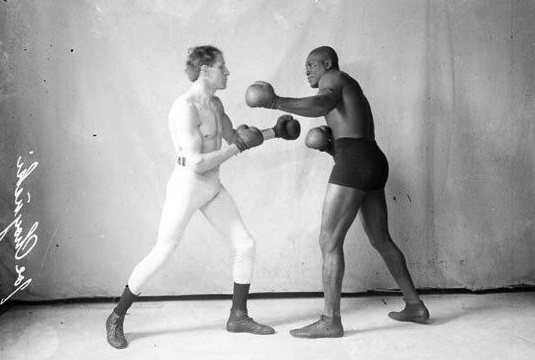
Born in San Francisco on November 8, 1868, Joseph Bartlett Choynski was the son of Isador Choynski, a Jewish Polish immigrant, and Harriett Ashim, who was from England. As Christopher LaForce explains in his excellent biography, The Choynski Chronicles, young Joe was the fourth of five children, but there is no record of his birth because the majority of medical records did not survive the 1906 San Francisco earthquake and subsequent fires.
Choynski’s father was an erudite man, a writer and newspaper publisher, who established an antiquarian bookstore. He also had a fiery temper and this along with his keen intelligence he passed on to his son. The man who would later be known as “The California Terror” and “Little Joe” began his amateur career in 1884 and went on to win the Pacific Coast championship in 1887 before turning pro the following year. Another of Choynski’s nicknames was “Chrysanthemum Joe,” this appellation inspired by his choosing to let his mane of thick hair grow long, his coiffure of flowing and flowery locks an eccentric trait for the time.
Despite routinely giving up between thirty and seventy pounds to his opponents, Choynski’s skill and power allowed him to succeed. Part of the reason Choynski had to compete against much larger men is that the light heavyweight division was not established until 1903, a year before he retired. Standing 5’10” and weighing around 170 pounds, Choynski, like many great fighters of the time, thought nothing of taking on adversaries who were taller and heavier. Besides, there’s no better equalizer than raw power and in that regard Choynski was exceptionally gifted.
Choynski shared the ring with the best battlers of his era, many of whom were world champions. In addition to Johnson, that list includes “Ruby Rob” Fitzsimmons, “Gentleman Jim” Corbett, James J. Jeffries, Kid McCoy, Tom Sharkey, and the legendary Barbados Joe Walcott, all of whom are enshrined in the Hall of Fame. But unfortunately none gave Choynski a chance when they held a world title belt, freezing “Little Joe” out and adding him to the list of pugilistic legends who never had a chance to compete for a strap. It speaks to Choynski’s power, ability and doggedness that those who did face him never granted him a rematch.
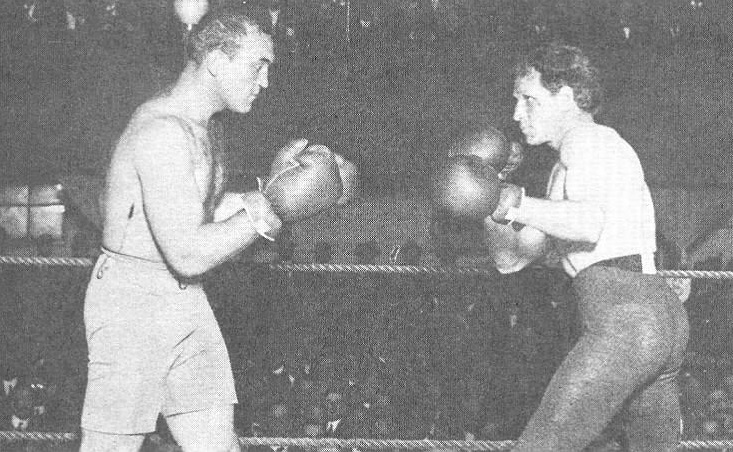
Indeed, Jack Johnson wasn’t the only all-time great to acknowledge Choynski’s punching prowess. Despite holding a fifty pound weight advantage over Joe, James J. Jeffries, aka “The Boilermaker,” could not defeat Choynski, the judges scoring their twenty round contest in 1897 a draw.
“To this day, I can’t figure out how a runt like him could hurt so damned bad,” declared Jeffries some years later. “During our scrap, he clipped me with a right that landed high on my cheekbone. I figured my whole face was caved in, and when I tried to feel what was left with my hands, there wasn’t any sensation at all. That was the hardest punch I ever took and had it landed a little lower I would have been knocked out for the first time in my life.”
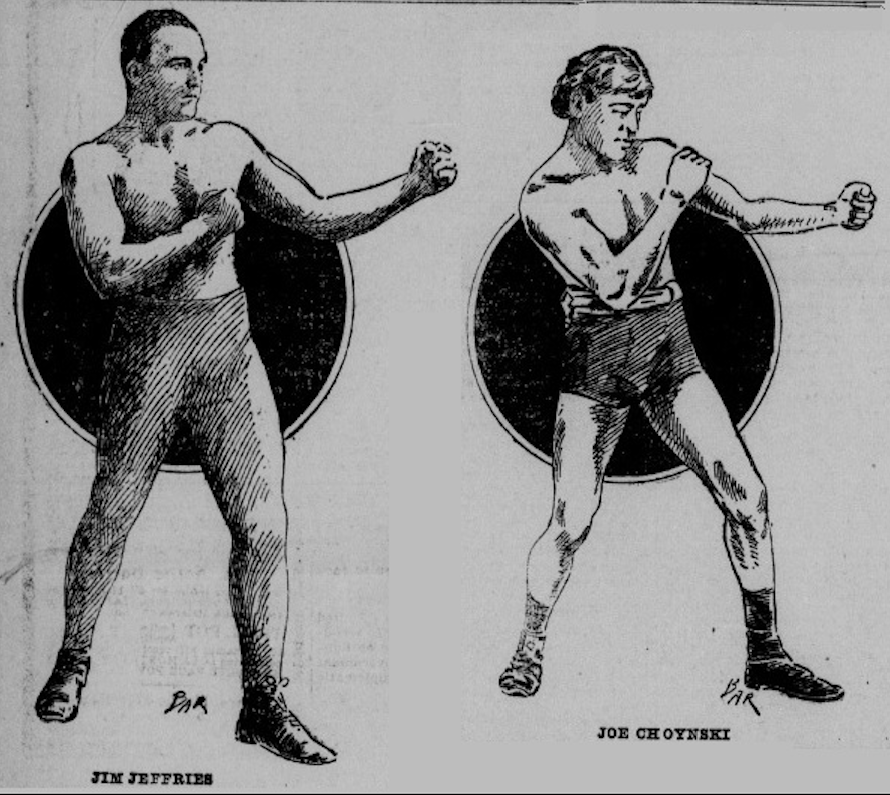
The San Francisco papers reporting on the Jeffries vs Choynski battle the next day all remarked on the difference in size between the two men, one stating that the match-up looked like a rematch between David and Goliath, only David didn’t have his sling. “Lucky for me, he didn’t,” remarked Jeffries. “He could do well enough with his fists.”
Bob Fitzsimmons and James Corbett also declared that the hardest blows they ever received in the squared circle were delivered by “The California Terror.” The Fitzsimmons bout in 1894 was declared a draw after five rounds due to police intervention, but Choynski believed that the knockdown he scored in the last round would have ended the fight had the police not stepped in.
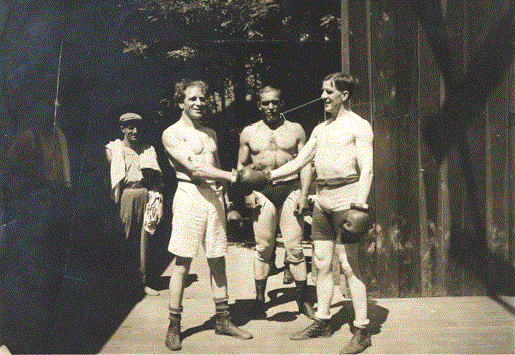
Choynski and “Gentleman Jim” fought three times in 1889. The matches took place in the San Francisco area, where both men grew up, and generated substantial local interest. The second bout, which occurred on a barge in Benicia Harbor, was the most notable, with Choynski getting the worst of a bloody battle before being stopped in round twenty-seven. But Corbett suffered for the victory as both his hands were severely damaged. He later wrote that his win that day was “the very toughest battle I had ever fought or was to fight; one in which I was to receive more punishment than I have ever had in all my battles put together.”
Years later Corbett praised Choynski’s extraordinary power. “Little Joe was the hardest hitter I ever tangled with,” he declared.
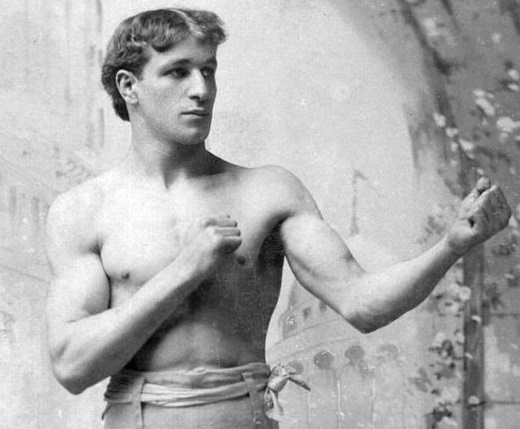
In 1904, Joe Choynski hung up his gloves, ending a 20 year boxing career with fifty wins in 79 total bouts. After retiring, he worked as a trainer and referee and was employed by several athletic associations. He also assisted in the promotion of championship bouts, including the famous Johnson vs Jeffries showdown in 1910. Online sources indicate that Choynski toured with heavyweight legend Peter Jackson in the production of “Uncle Tom’s Cabin,” a best-selling anti-slavery novel, and consulted on the production of the Jim Corbett biopic, “Gentleman Jim.” “Chrysanthemum Joe” eventually went into business and settled in Cincinnati, where he died on January 25, 1943.
Joe Choynski was finally inducted into the International Boxing Hall of Fame in 1998. Having posthumously achieved the highest honor in the sport, he is now rightfully included on any list of the greatest Jewish prizefighters of all time and no doubt deserves ranking alongside the hardest punchers in heavyweight history. — Jamie Rebner

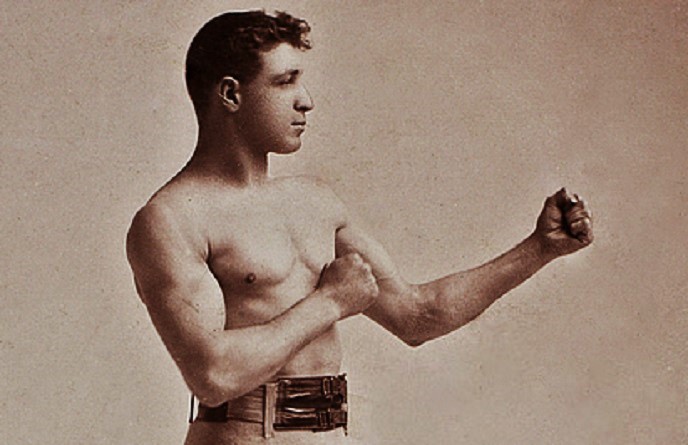
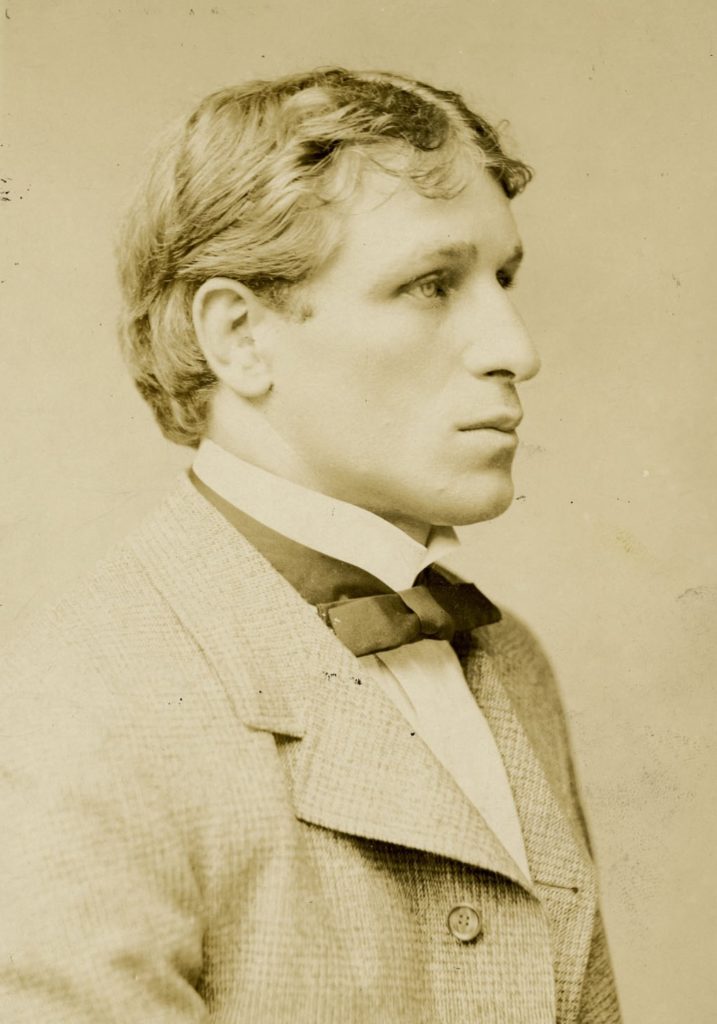

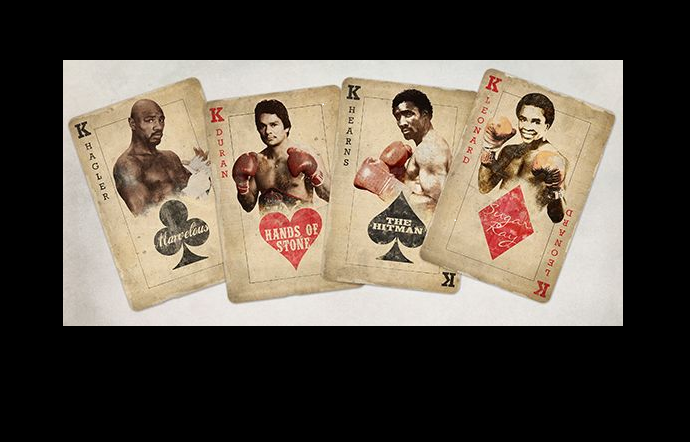
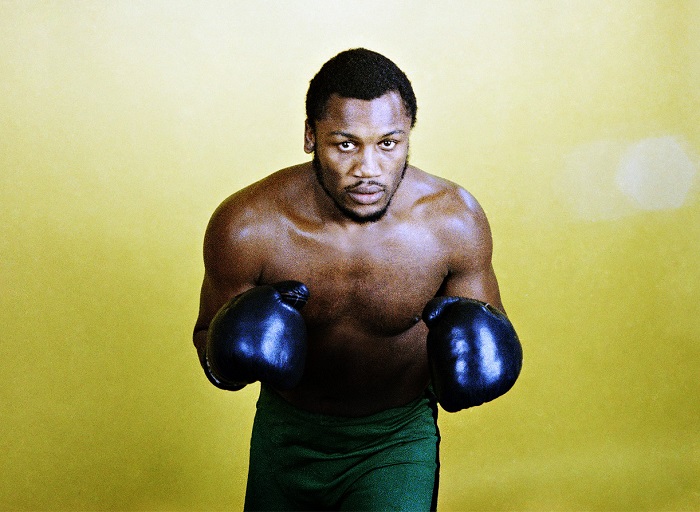
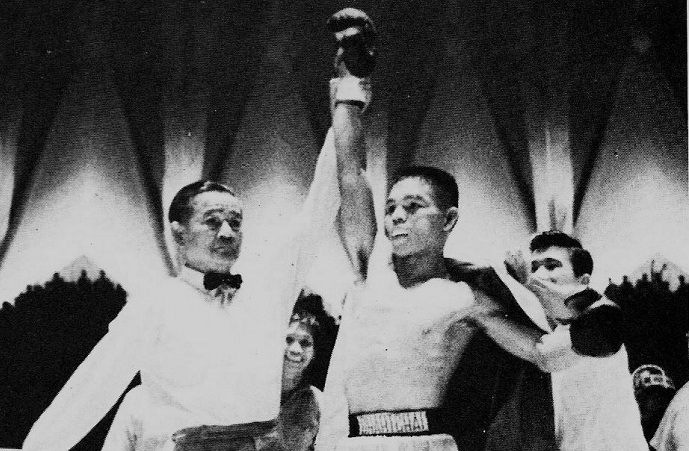
Jamie, you are a most talented writer, and I enjoyed reading your Joe Choynski article very much!
Only seeing this now but thank you very much Chris. Thank you for your generous help with my research; I couldn’t have done it without you!
Great Article once again mate 👊🏻. Joe was like Fitz, a much smaller man compared to other Heavyweights of his time, but with arguably the most devastating punching power, of the whole bunch.
Wonderful brief account of the career of my great-uncle Joe. Chris LaForce did an amazing job of research, but you have summarized it all perfectly.
Thank you David! Much appreciate those words. Chris helped me immensely and his book is a must-read for a more detailed account of Joe’s life.
I never heard of this man but I read your article and now I’m amazed that much bigger and talented fighters never wanted to fight him a second time. Once with him was enough! Thank you for educating me on this particularly good fighter.
Pingback: Fight City Legends: Joe Choynski | Sports Centre Live